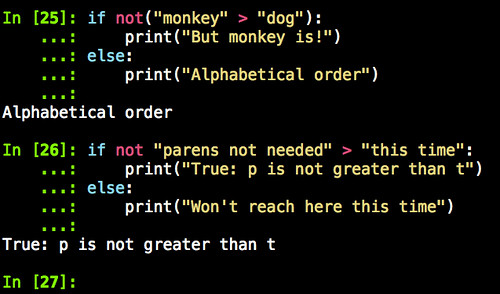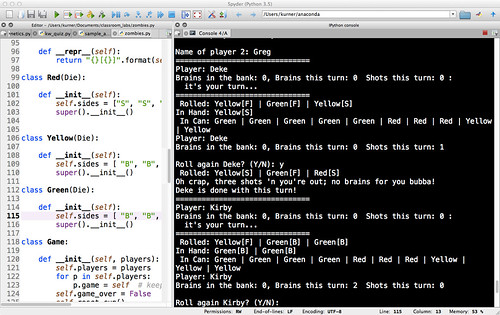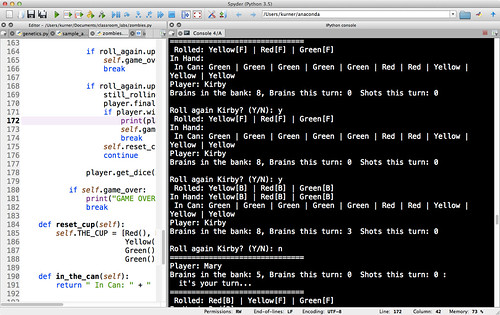I sent a memo around at work circling this forty-five minute contribution by Derek Banas as an unpretentious quick fly-through of the Python language, minus some bells and whistles like decorators and generators.
Some of those parens might come out i.e. keywords while, if and not are not callables, no keyword is, but that doesn't mean one can't nestle right up against them, parens keeping the object circled. Two idioms one might say:
What is and is not callable takes some time to sink in.
Good job Derek, slick editing and nice job slicing off a big helping without worrying about wrapping our minds around each and every keyword. That would come with follow-up clips, now that we've enjoyed a quick intro.
Additionally, I'd like to recommend the clip below for it's well-thought-out and communicated views regarding what languages to tackle in 2016. A good list to choose from, but there's really no reason to limit the field to ten, other than to keep the attention span of the viewer. Like, Scala and Clojure are both warming waters I'd add.
Put another way: there's room for more than one Top Ten list. This is as good a list as any. I like having Python in the best technical schools but yet not having to defend the number one position, stressful in any case. I need to take a look at C++11/14 it sounds like. Britannica's 11th was one of its best too.
Some of those parens might come out i.e. keywords while, if and not are not callables, no keyword is, but that doesn't mean one can't nestle right up against them, parens keeping the object circled. Two idioms one might say:
What is and is not callable takes some time to sink in.
Good job Derek, slick editing and nice job slicing off a big helping without worrying about wrapping our minds around each and every keyword. That would come with follow-up clips, now that we've enjoyed a quick intro.
Additionally, I'd like to recommend the clip below for it's well-thought-out and communicated views regarding what languages to tackle in 2016. A good list to choose from, but there's really no reason to limit the field to ten, other than to keep the attention span of the viewer. Like, Scala and Clojure are both warming waters I'd add.
Put another way: there's room for more than one Top Ten list. This is as good a list as any. I like having Python in the best technical schools but yet not having to defend the number one position, stressful in any case. I need to take a look at C++11/14 it sounds like. Britannica's 11th was one of its best too.








